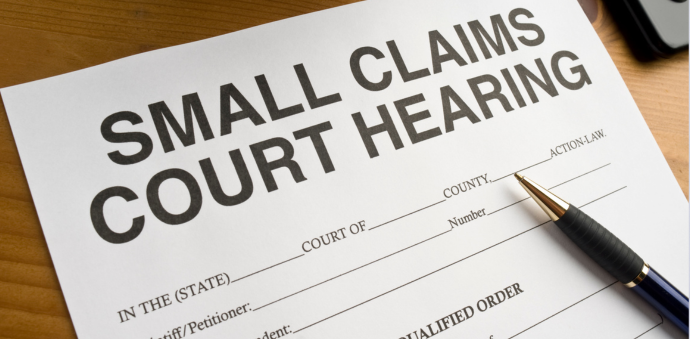How to Sue Your Landlord in Small Claims Court in North Carolina: A Tenant’s Step-by-Step Guide
Dealing with a landlord who won’t return your security deposit, fix major repairs, or honor your lease can be frustrating and stressful. If informal efforts to resolve the dispute have failed, suing your landlord in Small Claims Court can be an effective way to protect your rights and recover money owed.
This clear, empathetic guide explains how to sue your landlord in North Carolina Small Claims Court, what you need to prepare, and how to navigate the process confidently.
Why Use Small Claims Court?
Small Claims Court is designed for resolving disputes involving smaller amounts of money, usually between $5,000 and $10,000 depending on the county and is more informal than other courts. It’s a commonly used option for tenants seeking to recover security deposits, unpaid rent, or damages caused by landlord breaches.
Step 1: Prepare Your Case
- Identify the correct party: Confirm the legal name and address of your landlord. This may differ from a property management company. You can check your lease, property tax records, or local county offices to find the landlord’s official information.
- Gather your evidence: Collect important documents, including your lease agreement, proof of rent payments, repair requests (texts, emails, or letters), photos of damages or repairs needed, and any communication where the landlord neglects responsibilities. Receipts for expenses you paid due to landlord negligence also help.
- Calculate your claim: Decide how much money you are suing for, such as your full security deposit or costs of repairs. Be specific and reasonable.
Step 2: File Your Lawsuit
- Know where to file: File your small claims case in the District Court located in the county where your landlord lives.
- Complete court forms: Obtain the required complaint and summons forms from the clerk’s office or online court resources. Include your claim amount and a brief explanation of why the landlord owes you money.
- Pay the filing fee: Courts charge a filing fee, typically around $96, but fees may vary. Fee waivers are sometimes available for those who qualify.
- File your documents: Submit your completed forms and fee to the court clerk to officially start your case.
Step 3: Serve the Landlord
You must notify your landlord about the lawsuit by serving a copy of the complaint and summons. This can be done by:
- Hiring the sheriff to serve the documents personally (with a fee),
- Sending them via certified mail with a return receipt requested, or
- Using another method approved by North Carolina Rules of Civil Procedure.
Proof of service must be filed with the court before the case proceeds.
Step 4: Prepare for Your Court Hearing
- Organize your evidence: Bring all documents, photos, receipts, communication records, and your lease agreement to court.
- Practice your presentation: Be ready to calmly explain your case, the landlord’s breach, and why you are entitled to the money or damages sought.
- Consider witnesses: If anyone witnessed the landlord’s neglect or can confirm your damage claims, ask if they can attend or provide written statements.
- Know your rights: You have the right to present your case, question the landlord, and respond to their defense.
Step 5: Attend the Hearing and Get a Judgment
You and your landlord will present your sides. After hearing both, the judge will make a decision, either immediately or after some deliberation. If you win, the court can order your landlord to pay the amount owed.
Step 6: Collecting Your Judgment
Winning your case does not guarantee the money is paid immediately. The court can assist with collection methods if your landlord refuses to pay, such as wage garnishment or bank levies.
When Should You Consider Hiring an Attorney?
Small Claims Court is designed to be accessible without lawyers, but you can choose to have one represent you if needed, especially if your case is complicated or involves appeals.
Take Action Today: Don’t Let Your Landlord Keep What’s Yours
If your landlord has wronged you and you’re ready to take action, contact us today for a free consultation. We will help you:
- Understand whether your case suits Small Claims Court
- Gather and organize your evidence properly
- Navigate filing and serving procedures
- Prepare a strong case to recover your money
Protect your rights and hold your landlord accountable. Reach out now for trusted, expert support.
Read: North Carolina tenant rights during eviction process
